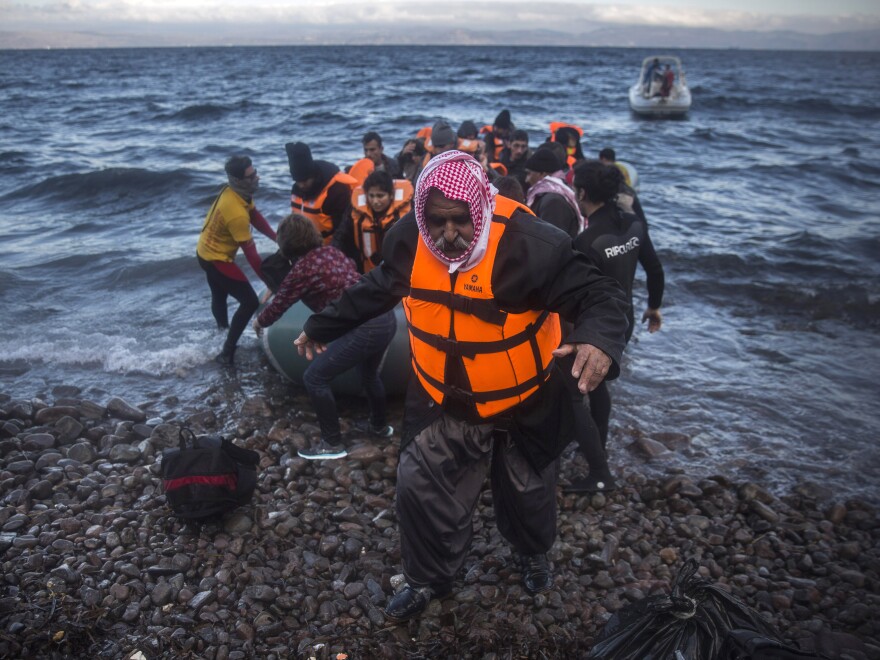This year will likely surpass all previous years' records for global forcible displacement, according to a new study from the U.N.'s refugee agency.
"As the number of refugees, asylum-seekers, and internally displaced persons (IDPs) worldwide continued to grow in 2015, it is likely that this figure has far surpassed 60 million," the U.N. said in its report, released Friday.
Here's another way to think about it: "In a global context, that means that one person in every 122 has been forced to flee their home," the U.N. says.
There are other worrying indicators in the U.N. refugee agency's report, which focused on the first half of 2015:
"Voluntary return rates — a measure of how many refugees can safely go back home and a barometer of the global state of conflict --- are at their lowest levels in over three decades (an estimated 84,000 people compared to 107,000 in the same period a year ago). In effect, if you become a refugee today your chances of going home are lower than at any time in more than 30 years.
"New refugee numbers are also up sharply: Some 839,000 people in just six months, equivalent to an average rate of almost 4,600 being forced to flee their countries every day."
The rising figure is being fueled by the continuing conflict in Syria. The war, which started in 2011, is the "single biggest generator worldwide of both new refugees and continuing mass internal and external displacement," the U.N. says.
The U.N. projected that 1 million migrants will make the dangerous journey across the Mediterranean this year. That's almost five times the number recorded in 2014, the International Organization for Migration reports.
NPR's Deborah Amos spoke to Morning Edition on Thursday from Turkey, which is a major route for migrants heading to Europe. She says that despite the cold weather and a new EU agreement with Turkey designed to stem the flow, refugees continue to make the crossing.
She spoke with Tracy Lucas, a project coordinator for Mercy Corps in Izmir, Turkey:
"People are absolutely desperate. By the time they take that decision — I mean, look, you don't wake up one morning and think I know I'm going to leave my home and everything that I know and trust today. You wait until things get so bad that you realize that you are not going to survive and your family is not going to survive."
Copyright 2021 NPR. To see more, visit https://www.npr.org. 9(MDAxODc1NzUzMDEyMTgyMjc0NzUxZmVhMQ004))



